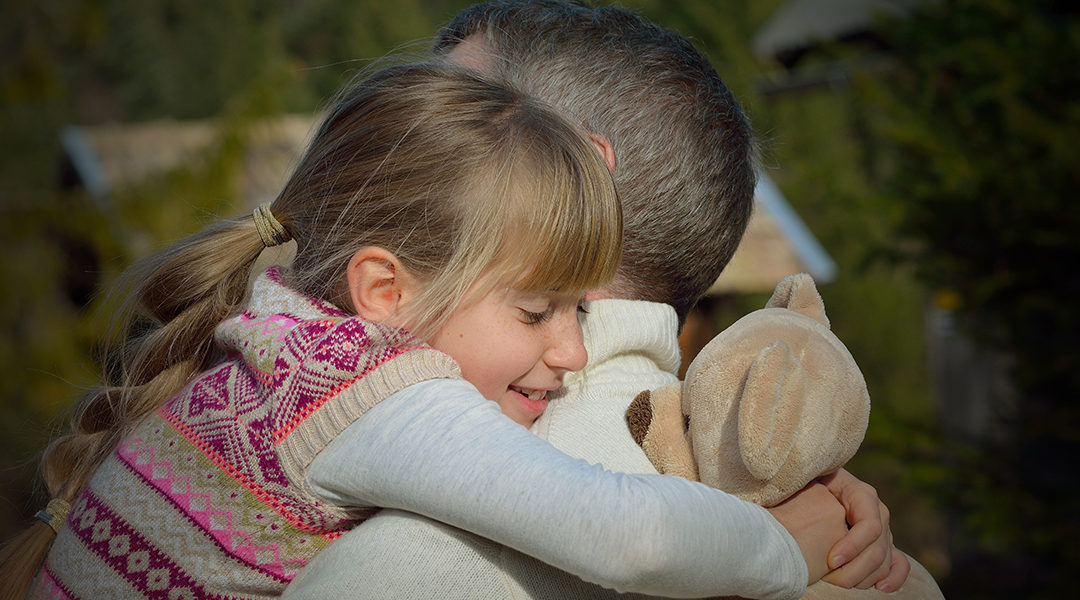Fall 2021/Matthew McDill
I was cleaning up our garage yesterday and clearing off the ping-pong table. I dusted off the table and grabbed the net to set it up, but it was broken. I asked around about who broke it and how. I knew this was a vain endeavor before I began. As usual, no one knew how it was broken, and no one did it. Finding stuff broken at our house is a regular occurrence. I have to be honest; it is one of the most irritating things I experience as a dad. Arguments, unhappy children, half-done chores, and yelling are also on my list of irritants.
You don’t need me to tell you that parenting and homeschooling are severely challenging at times. We are often left weary and discouraged. However, I have discovered a key that empowers me to be the parent I want to be. This idea may sound cheesy or obvious or abstract, but the key is love. Now I know you love your children in principle, but I’m talking about love in action, from the heart, day by day. There are three important aspects of day-in, day-out love I’d like for us to consider.
It’s Not about You
When we find broken ping-pong nets, among many much more expensive damaged items, it can be extremely irritating. However, most of the time when we become angry with our children, it is not “righteous anger.” It is “this really bugs me” anger. Parents can become angry when we are inconvenienced or feel like things are out of our control. Disrespect and disobedience also sometimes cause anger. We often take personal offense at these actions; no one wants to be treated that way.
However, in 1 Corinthians 13:5 we learn that “love does not insist on its own way; it is not irritable or resentful.” So often, our concern is primarily about how things affect us, and when things do not go our way, we become irritable. This attitude is just basic selfishness. But selfishness is the opposite of love. Love is when we do what is best for others, even when it is costly to us. Love is sacrificial. My goal as a loving dad is to do what is best for my kids, not to make sure that I am inconvenienced as little as possible while I parent. If I am really going to work to do what is best for my kids, it’s going to cost me.
That’s one of the key issues of love: It’s not about me. We can experience incredible freedom when we choose the path of love instead of selfishness. We take the sacrifice in stride because we know it’s coming, and we’ve counted the cost. We take it in stride because love says that what is best for my children is more important than what is best for me.
Some Things Aren’t That Important
Love helps us to keep things in perspective. It is so easy for us to get bent out of shape over little things. We lose our temper and treat our children with impatience and harshness. When we behave this way, it creates stress on our relationships. It does not build trust and earn respect. It also does not produce what we want to grow in them. Our anger may produce changed behavior motivated by fear, but it does not bear the fruit of a heart-change that comes from a real understanding.
Love helps us to remember what is important. That’s why “love is patient and kind” (1 Corinthians 13:4). That broken net is not important. The extra time and money I have to spend on broken stuff are not all that important compared to the relationship I am building with my children, and my mission of raising followers of Christ.
It’s Not about Making Them Happy
It has taken me so long to learn this one! I love it when my kids smile and laugh. I want them to have fun and be happy. If I admit it, I also want them to like me because I bring them happiness. However, you don’t have to think about it for very long to realize that always making a child happy is not loving. They don’t have the maturity to know what is good for them. That is why our job is to help them be safe and healthy. We can’t let them play with knives or eat as much ice cream as they want (at least not every day). Sometimes love says “no.” I hate being the guy who says no and disappoints my kids. But I know that “love does not rejoice with evil, but rejoices with the truth” (1 Corinthians 13:6).
Love frees us to say “no” or provide correction to our children with patience and kindness. We don’t have to wait until we are angry to finally say “no.” We don’t have to yell or argue. We sometimes say “no” because we love our children. When that makes them sad or even mad, then we still have the power to do what is best for them, knowing that they will often not understand.
Conclusion: Beyond Our Own Abilities
Loving others is the second most important thing God wants us to do (after loving him) (Mark 12:30-31). Love is what God is and what he pours into our hearts (1 John 4:8; Romans 5:5). Love is one of the most obvious indicators of our relationship with God (1 John 4:7). It is not a real surprise that when we learn to truly love our children from the heart, we find an amazing grace from God to parent and homeschool our children far beyond our abilities.




